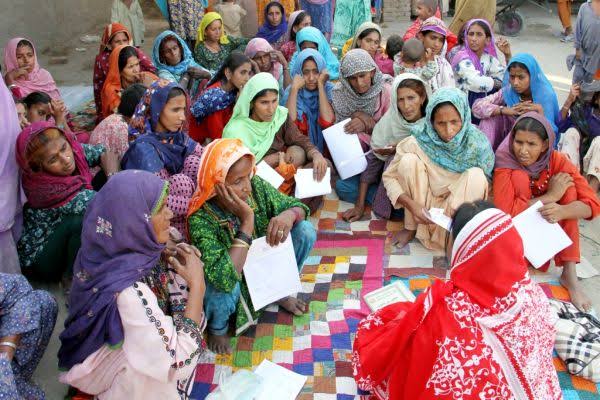How Social Mobilization Can Transform the Lives of Marginalized Communities in Pakistan
By Kashif Shamim Siddiqui
As Pakistan observes National Minorities’ Day, it is crucial to shed light on the persistent challenges faced by minority communities across the country. These challenges are particularly acute in deprived areas, where access to essential services remains a significant struggle. Minority groups in rural regions and urban slums frequently face inadequate healthcare, limited educational opportunities, high unemployment, and insufficient access to nutritious food. Moreover, basic utilities such as water, gas, and electricity are often unreliable or entirely unavailable, compounded by a lack of proper sanitation and hygiene facilities.
In cities like Lahore and Faisalabad, particularly in Christian-majority areas, these hardships are even more pronounced. The marginalized communities in these cities grapple with severe gaps in essential services and economic opportunities, making daily life an ongoing struggle.
In Karachi’s slums, the situation is further exacerbated. Christian communities in these areas experience similar challenges—poor access to healthcare, limited educational resources, high unemployment rates, and inconsistent utility services. The absence of adequate sanitation facilities contributes to worsening living conditions, highlighting the urgent need for comprehensive solutions.
The Power of Social Mobilization
Social mobilization presents a powerful and effective approach to addressing these challenges and empowering marginalized communities. This process involves organizing and engaging community members to collectively address their issues and advocate for their needs. The following are ways in which social mobilization can significantly impact these communities:
Enhancing Awareness and Education: Social mobilization begins with raising awareness. Through community workshops, campaigns, and meetings, individuals learn about their rights and the resources available to them. This education empowers community members to make informed decisions regarding health, education, and sanitation, enabling them to advocate for better services and opportunities.
Building Local Capacity: Empowering communities involves strengthening their ability to manage their own affairs. Social mobilization provides essential training and resources that equip individuals with the skills needed to address their challenges. For instance, health workshops can teach basic hygiene practices, while vocational training can improve job prospects. By developing local leadership and management skills, communities become more self-reliant and capable of implementing sustainable solutions.
Promoting Collective Action: Social mobilization fosters unity and collective action. When community members collaborate, they can address issues more effectively than when acting alone. Collective efforts might include organizing community clean-ups, setting up local health initiatives, or advocating for improved services from local authorities. This united approach amplifies their voice and enhances their ability to negotiate with policymakers and service providers.
Encouraging Advocacy and Policy Change: Advocacy is a key component of social mobilization. By mobilizing community members, social mobilization draws attention to their needs and concerns. NGOs can facilitate advocacy campaigns and community-led initiatives, pressing authorities and policymakers to address these issues. Effective advocacy can lead to policy changes that improve access to essential services such as healthcare, education, and basic utilities.
Strengthening Community Networks: Social mobilization helps build strong community networks and support systems. By connecting individuals and groups within the community, it creates a network of mutual support. These networks can provide emotional support, share resources, and collaborate on community projects, enhancing resilience and creating a supportive environment where individuals are more likely to thrive.
Improving Access to Resources: Through social mobilization, communities can better access resources and services. NGOs can partner with communities to provide essential resources such as funding for infrastructure, educational materials, or health services. Involving community members in the planning and implementation of these resources ensures that solutions are tailored to their needs and are more likely to be effective.
Fostering Inclusivity and Equity: Social mobilization promotes inclusivity and equity by actively involving marginalized groups in decision-making processes. This approach ensures that their voices are heard and their needs are addressed, helping to reduce inequalities and ensuring that all community members have access to the same opportunities and services.
Looking Ahead
On this National Minorities’ Day, it is important to recognize the transformative potential of social mobilization for marginalized communities across Pakistan. By enhancing awareness, building local capacity, promoting collective action, encouraging advocacy, strengthening community networks, improving access to resources, and fostering inclusivity, social mobilization empowers these communities to overcome their challenges and achieve better living conditions. NGOs and community organizations play a crucial role in facilitating this process, helping to ensure that every community member has the opportunity to thrive and contribute to a more equitable and just society.



Comments are closed.